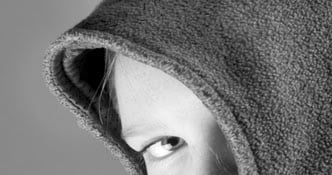Children With Autism More Likely to Experience Hallucinations but Not to Develop Psychosis
 Children with autism spectrum disorder (ASD) are more than seven times as likely to be prescribed antipsychotics as a child without ASD, but they are not more likely to be diagnosed with a psychotic disorder later in life, according to a poster presented this week at the American Academy of Child and Adolescent Psychiatry’s 2025 annual meeting in Chicago.
Children with autism spectrum disorder (ASD) are more than seven times as likely to be prescribed antipsychotics as a child without ASD, but they are not more likely to be diagnosed with a psychotic disorder later in life, according to a poster presented this week at the American Academy of Child and Adolescent Psychiatry’s 2025 annual meeting in Chicago.“ASD can present with symptoms that overlap with psychotic disorders (unusual thinking, misinterpreting social cues, and social isolation), and it can be challenging to diagnose psychosis in a child or adolescent with ASD,” wrote Tammy Hua, M.D., of the University of Washington, and colleagues. “The primary treatment for psychosis and schizophrenia is often antipsychotics. However, antipsychotics may also be used to manage ASD-associated irritability.”
Hua and colleagues used the TriNetX health care database to analyze five years of electronic medical record data among patients 18 and younger without a history of schizophrenia. The researchers matched a cohort of 484,396 patients with ASD with a control group of patients without ASD.
Children with ASD were two-and-a-half times more likely to experience hallucinations as the control group and three-and-a-half times more likely to experience aggression. Youth with ASD were also nearly eight times more likely to be prescribed antipsychotics and more than five times more likely to be prescribed nonstimulant attention-deficit/hyperactivity disorder (ADHD) medications. However, there was no statistically significant difference in the risk of developing a primary psychotic disorder later in life between those with or without ASD.
The finding that children with ASD are not more likely to be diagnosed with a primary psychotic disorder later in life is reassuring, the authors wrote. But considering the findings that children with ASD are more likely to be prescribed antipsychotics and nonstimulant ADHD medications, the authors concluded: “Future studies are warranted to clarify the correlation between ASD and psychosis.”
For related information, see the Psychiatric News article “Acetaminophen Claims Obscure True Issues Facing Autistic Patients.”
(Image: Getty Images/iStock/SeventyFour)





